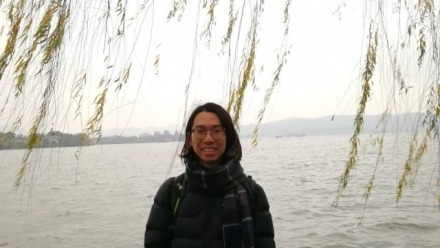Dragon Tails 2019 - An article by Tandee Wang

Title: Dragon Tails 2019
Author: Tandee Wang
Bio: Tandee is a PhB (Arts) student who will be undertaking his Honours study with the School of History in 2020.
On 21-23 November, I attended 'Dragon Tails 2019', the sixth Australasian conference on Chinese diaspora history and heritage. This year's conference marked the 10th anniversary since the inaugural Dragon Tails, and it was held at Victoria University, Wellington, Aotearoa/New Zealand, the first time the conference has been hosted across the Tasman Sea.
My first impression of Dragon Tails was the strong sense of community fostered by the conference. Many people in attendance seemed to have long-standing friendships with each other, took pride in and referenced the number of Dragon Tails they had previously been to, and attended the conference for reasons that were not only academic, but also very personal. Indeed, the sizeable number of presentations from individuals researching their own family histories and sharing their personal stories attested to the strong community-focused nature of this conference.
This was, personally, very relieving for me. Although my own developing research interest in Chinese Australian history has been motivated by own background, I have been nervous about the scholarly implications of conducting academic research with a strong connection to personal experience. My perspective on this has, of course, changed over time, and I am increasingly of the view that personal investment in the topic of academic research can be an important strength that can clarify and strengthen research aims and conclusions. I was encouraged to find in Dragon Tails, therefore, a community of practice where the 'academic' and the 'personal' came together, in a celebration of the stories of Chinese Australian and Chinese New-Zealander people.
My one disappointment with Dragon Tails, however, was that its scope was not larger, reflecting what is still a very small field of Chinese Australian history. Chinese diasporic experiences are extremely diverse, but many of the stories told at Dragon Tails related to one particular experience--that of migrants from Guangdong province in the nineteenth or early twentieth centuries.
These stories are undeniably important. But where does my story, and the stories of many of my Chinese-Australian peers, fit? Many of us grew up second-generation Chinese Australian, and our diaspora journeys began with our parents' migration from many different parts of the People's Republic of China (and beyond), not one region of the Qing Empire. The demographic and political landscape in Australia has also changed dramatically since the nineteenth and early twentieth centuries, including significant Chinese migration in recent decades, the changing racial politics of a post-White Australia policy nation, and the rise of China. For those who migrated or grew up in the Australia of the 1970s, 80s and 90s, these factors have likely created what are sometimes very different experiences of being Chinese in Australia.
My own Honours topic with the School of History concerns the experiences of Chinese migrants who were able to stay in Australia after Bob Hawke's response to the Tiananmen Square Massacre. But, although this episode is important to understanding the Chinese diaspora's experience in Australia, I found nothing like this research at Dragon Tails. This is largely symptomatic of the broader field of Chinese Australian history, which also has little scholarship about recent Chinese migrations.
Despite this, my experience at Dragon Tails 2019 has made me confident that this research would be warmly welcomed, and I look forward to being able to share it when the Conference next convenes. It was a great privilege to have been able to join Dragon Tails, and I would encourage anyone interested in the Chinese diaspora in Australia and New Zealand to attend and present at subsequent conferences.
My own attendance at Dragon Tails was only possible because of the generous support of my supervisor, Professor Frank Bongiorno, and the School of History, as well as the Student Extracurricular Enrichment Fund (SEEF), administered by PARSA (Postgraduate and Research Students' Association). To them, I owe many thanks.









